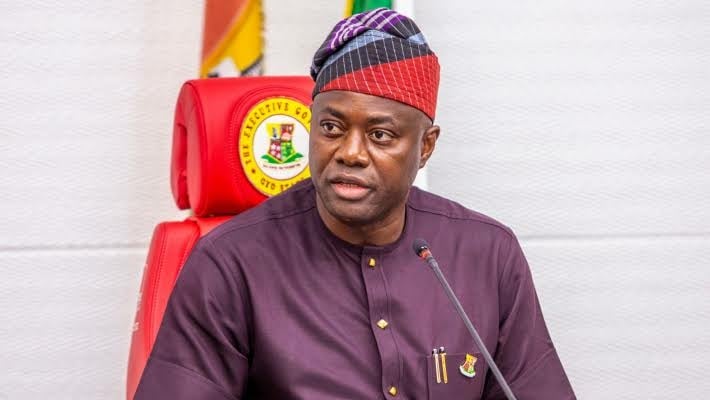Oyo State governor, Seyi Makinde, has criticised the Minister of Works, David Umahi, for refusing to provide a clear breakdown of the cost of the Lagos-Calabar Coastal Highway project, describing his response to public inquiries as evasive and unnecessary.
Speaking in a viral video on Friday, Makinde said there was no reason for Umahi to be “dancing around the cost” of the multibillion-naira highway, which has generated controversy since its approval by President Bola Tinubu.
“They asked a minister how much the coastal road is, and then you (Umahi) are dancing around and going to say that no, the next kilometre is different from the next kilometre. Then what is the average cost?” Makinde asked.
LEADERSHIP reports that the governor’s remarks came after a heated exchange on Tuesday between Umahi and Arise News anchor, Rufai Oseni. During the live interview, Oseni had requested that the minister break down the cost of the Lagos-Calabar Coastal Highway on a per-kilometre basis.
The question appeared to irritate the minister, who responded sharply, saying the inquiry “made no sense” and that the journalist lacked the technical knowledge to understand the figures.
“These are elementary questions. And it makes no sense. A process is ongoing, payment has been made, and you are saying, ‘how has this money been utilised?’ The money is meant for the project, and it will be paid according to the work done,” Umahi had said.
He added, “When a certificate is generated, and it is approved through a process in the Ministry of Works, it will then be given to the funders, who will, in turn, check if the works were done. How can you be asking for cost per kilometre? The prices are different. The next kilometre is different from the next kilometre.
“Keep quiet and stop saying what you don’t know. I’m a professor in this field. You don’t understand anything. You have no knowledge of what you ask.”
Oseni, refusing to back down, retorted, “Minister, it’s alright. Keep dignifying yourself, and let the world know who you truly are.”
But, reacting to the development, Makinde defended the journalist’s question, saying Nigerians deserve transparency on public expenditure. The governor illustrated his point by citing the cost of road projects executed by his administration in Oyo State
“When we did the Oyo to Iseyin road then, it was about ₦9.99 billion, almost ₦10 billion. About 34 or 35 kilometres, average cost is about ₦238 million per kilometre,” he explained.
“But when we did Iseyin to Ogbomoso, that was 76 kilometres, it was about ₦43 billion, average cost is about ₦500 million per kilometre. And we had two bridges, one over the Ogun River and then one at Ogbomoso end.”
Makinde argued that if state governments could openly provide cost analyses of their projects, there was no reason for a federal minister to avoid doing the same on a major national highway.
The Lagos-Calabar Coastal Highway, spanning about 700 kilometres across nine states, is one of the largest infrastructure projects under the Tinubu administration. The project, being handled by Hitech Construction Company Limited, includes two spurs linking the corridor to northern Nigeria.
In 2024, Umahi officially handed over the first phase of the 47.47-kilometre dual carriageway to the contractors, stating that the project would be built using concrete pavement and completed within record time.
At the time, the minister warned that the Federal Government would not tolerate cost variations or delays, stressing that contractors must deliver promptly once mobilisation had been done.
Despite these assurances, public concern continues to mount over the project’s actual cost, level of transparency, and potential economic implications.





